Portal for more climate-friendly mobility
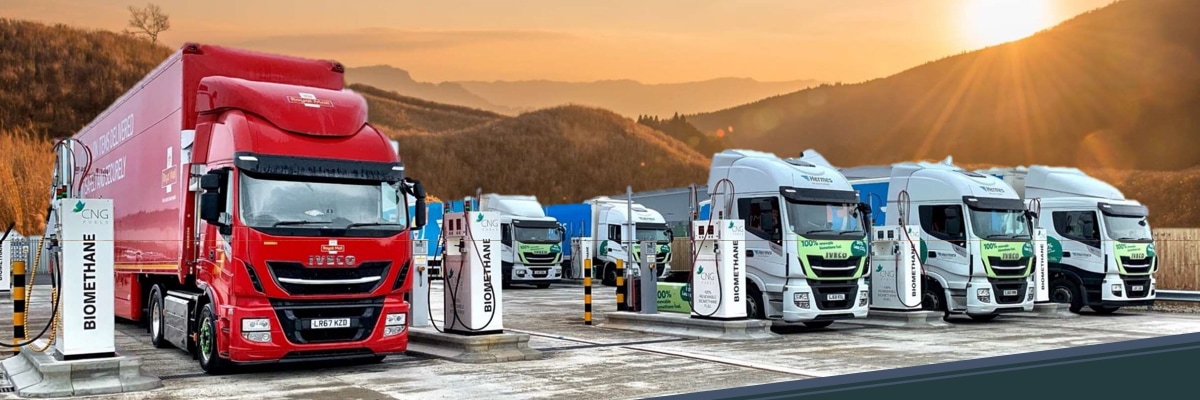
Refuelling 60 biogas trucks per hour
In the UK, ReFuels impressively demonstrates the possibilities biogas offers for CO2 reduction in heavy goods transport. Last month, the company opened its eleventh filling station specifically for trucks under the CNG Fuels brand.
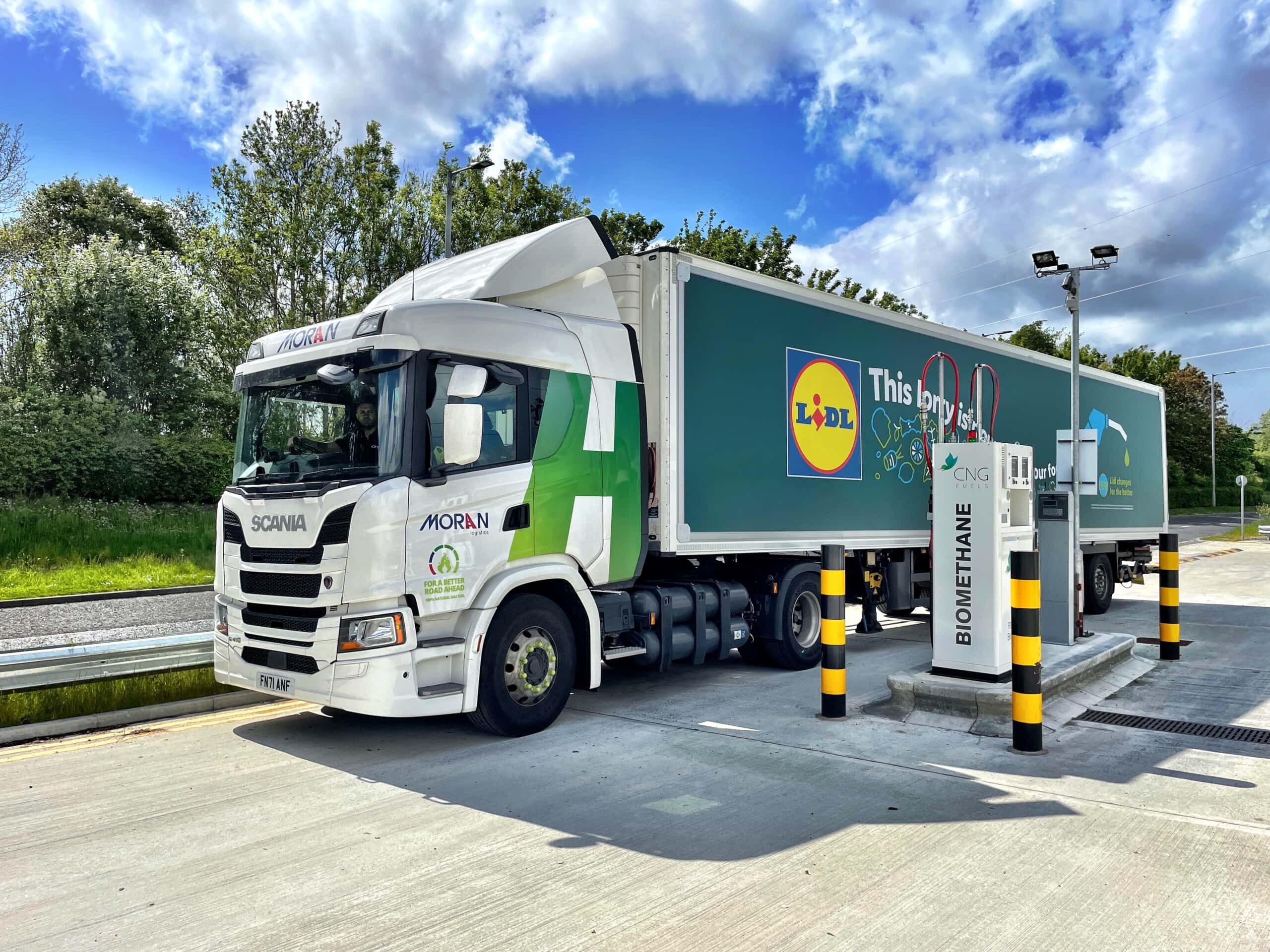 In England, heavy transport is becoming the innovation driver in the biogas and LBG/Bio-LNG sector and is ensuring that the filling station network is massively expanded. Source: ReFuels N.V.
In England, heavy transport is becoming the innovation driver in the biogas and LBG/Bio-LNG sector and is ensuring that the filling station network is massively expanded. Source: ReFuels N.V.
It is not only in Switzerland that major distributors such as Migros in eastern Switzerland and Basel or, above all, Lidl and its logistics partners are relying on CNG trucks in order to massively reduce CO2 emissions on daily transport routes thanks to biogas. In the UK, too, many customers such as Lidl, DHL, GBA Services or the Post appreciate biogas as part of the solution on the way to net zero. Although trucks make up only one per cent of the entire transport fleet in the kingdom, they are responsible for a whopping 18 per cent of CO2 emissions at the same time. So the sooner you decarbonise the “heavy boys”, the better for the environment.
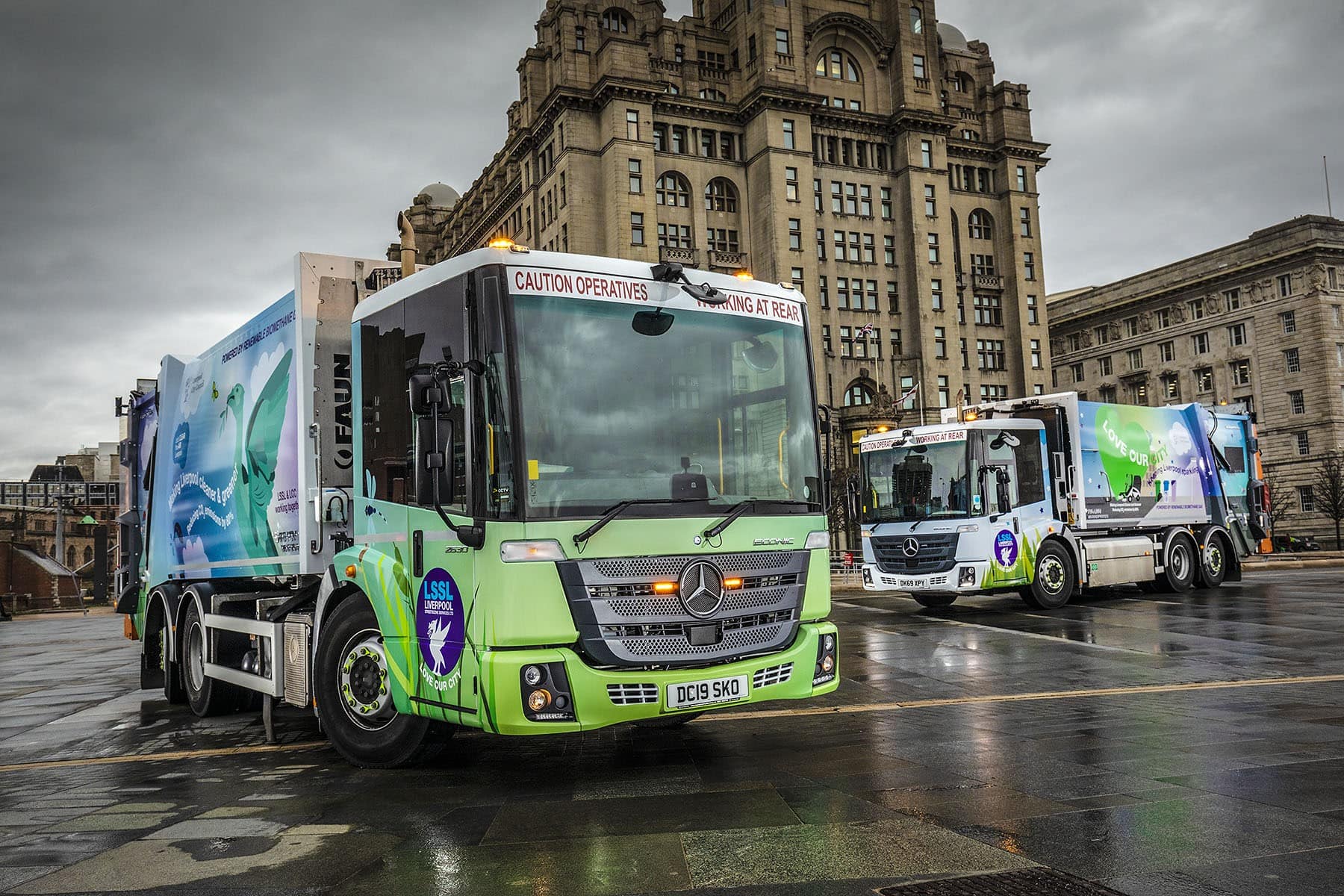 Liverpool – CNG trucksThree years ago, Liverpool, for example, commissioned England’s largest CNG refuse fleet at the time, with 20 CNG refuse trucks. Source: Liverpool Streetscene Services Ltd (LSSL).
Liverpool – CNG trucksThree years ago, Liverpool, for example, commissioned England’s largest CNG refuse fleet at the time, with 20 CNG refuse trucks. Source: Liverpool Streetscene Services Ltd (LSSL).
Many hauliers and logistics companies have recognised this and are turning to CNG or, for longer distances, LNG propulsion. This is because gas trucks emit up to 35 percent less CO2 than comparable diesel trucks. Even with the highly cold, liquefied LNG, large amounts of greenhouse gas emissions can be saved. If the trucks are running on biogas or bio-LNG/LBG, they are almost CO2-neutral. No wonder, the CNG truck fleet there more than doubled from 774 to 1316 units between May 2022 and May 2023. And another 900 units have already been ordered from the various manufacturers and are waiting to hit British roads.
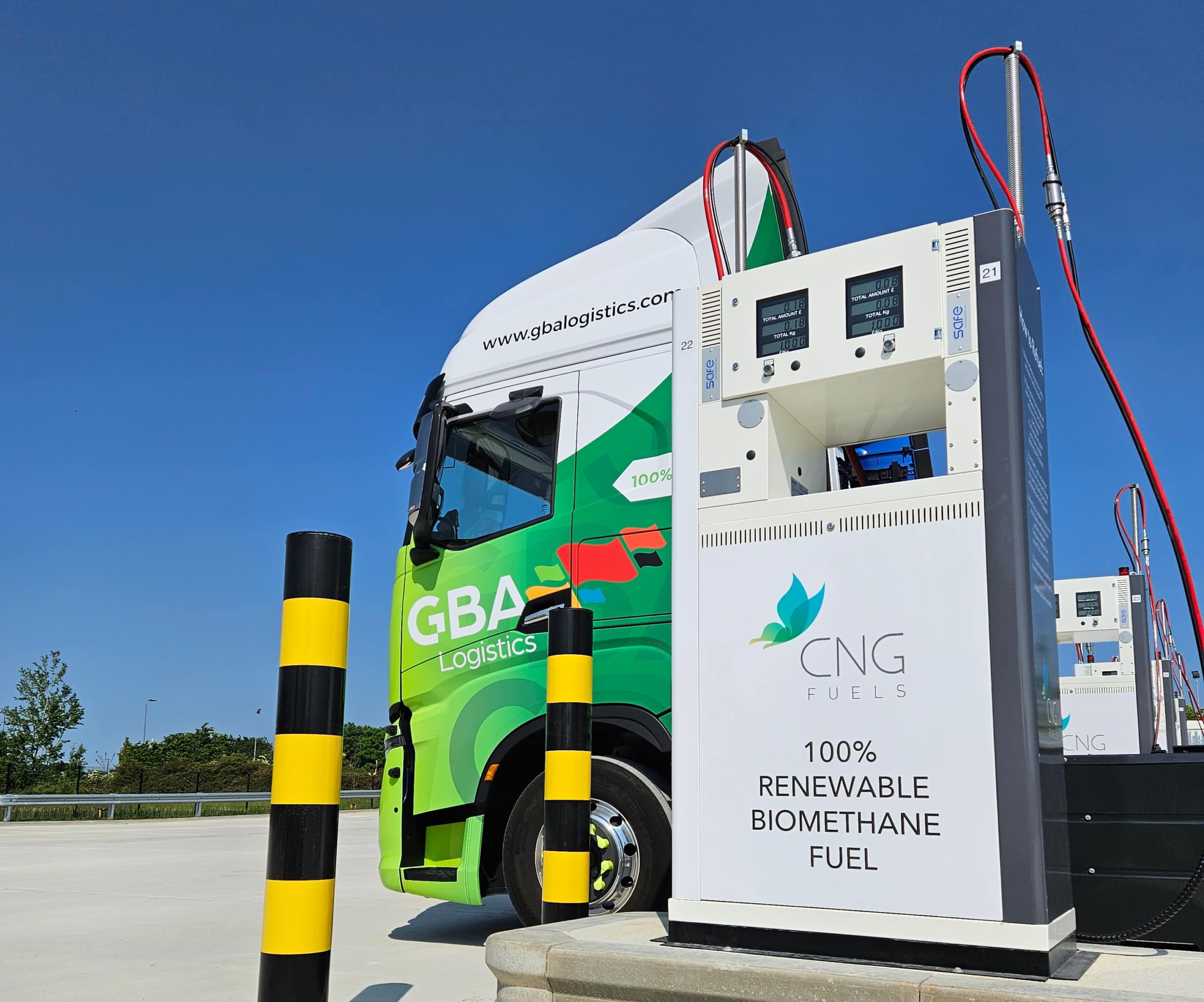 Almost monthly, ReFuels N.V. is currently opening new biogas filling stations in England at important transit routes and heavy traffic hubs, especially tailored to the needs of CNG trucks. Source: ReFuels N.V.
Almost monthly, ReFuels N.V. is currently opening new biogas filling stations in England at important transit routes and heavy traffic hubs, especially tailored to the needs of CNG trucks. Source: ReFuels N.V.
These are also good foundations for expanding the infrastructure and refuelling facilities. ReFuels N.V. has therefore just opened its eleventh filling station in Newton Aycliffe under the CNG Fuels brand. It is not just any filling station, however, but one that has been specially tailored to the needs of trucks and is the most powerful CNG filling station in England to date. The 14 pumps can refuel 60 CNG trucks per hour. This gives it a total annual capacity of more than 27 million kilos of biogas, with which it can ideally serve local truck fleets and equally long-distance traffic.
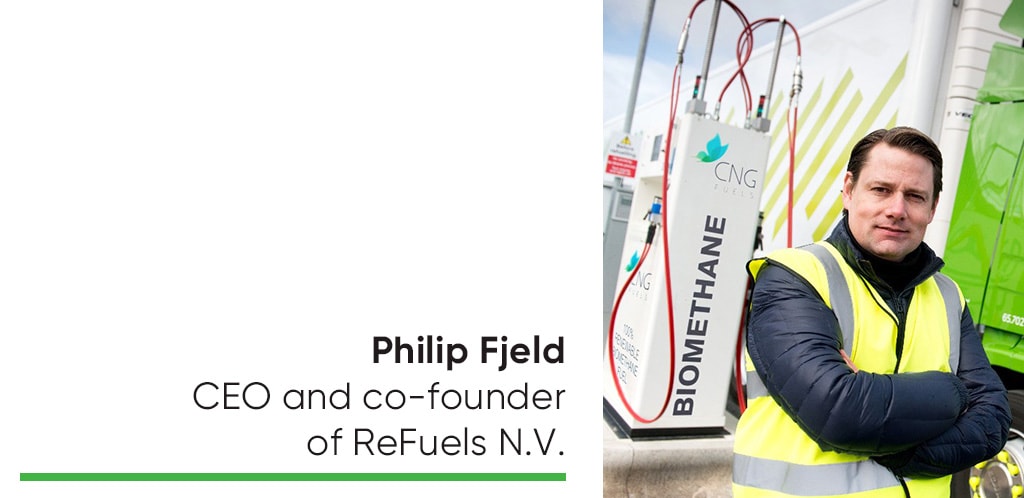
With this new station, ReFuels is extending its network of publicly accessible filling stations to the most important truck routes in the North East of England. The company thus offers its customers the convenient access to biogas they need to minimise the CO2 emissions of a wide range of logistics activities. “We are seeing strong demand for our renewable and sustainable biogas,” explains Philip Fjeld, CEO and co-founder of ReFuels. “The new site in Newton Aycliffe is part of our strategy to continue to grow as the UK’s leading integrated alternative fuels provider. Our aim is to have around 30 to 40 filling stations in operation by the end of 2025 and to expand into other European markets in the longer term.”
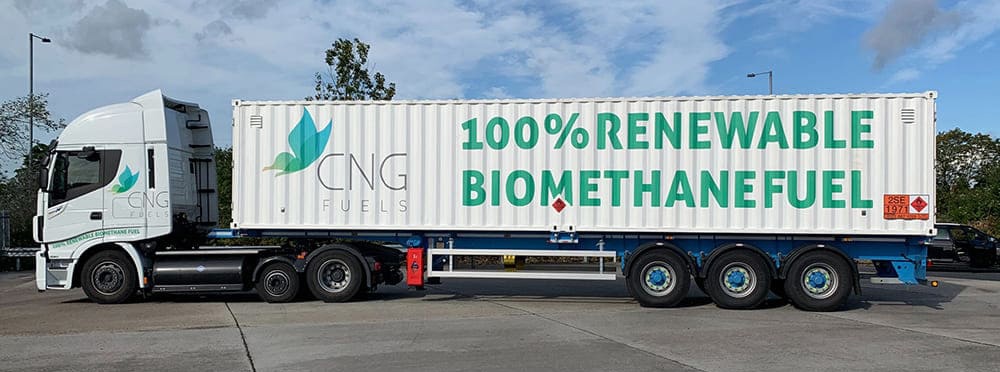 Under the CNG Fuels brand, Philip Fjeld, CEO and co-founder of ReFuels, is driving filling station expansion to ensure more biogas trucks find their way onto the Kingdom’s roads. Source: ReFuels N.V.
Under the CNG Fuels brand, Philip Fjeld, CEO and co-founder of ReFuels, is driving filling station expansion to ensure more biogas trucks find their way onto the Kingdom’s roads. Source: ReFuels N.V.
Jason Wild, Senior Consultant Distribution & Recycling at Lidl UK, appreciates this growing biogas offering: “Lidl is committed to reducing CO2 emissions across the business. Over the last few years, we have gradually converted our truck fleet to biogas. This allows us to reduce our transport emissions by up to 90 per cent compared to our diesel trucks.” Thanks to the new fuelling facility in Newton Aycliffe, England, the retailer can now complete additional transport routes in the north-east of Great Britain in a virtually CO2-neutral manner.
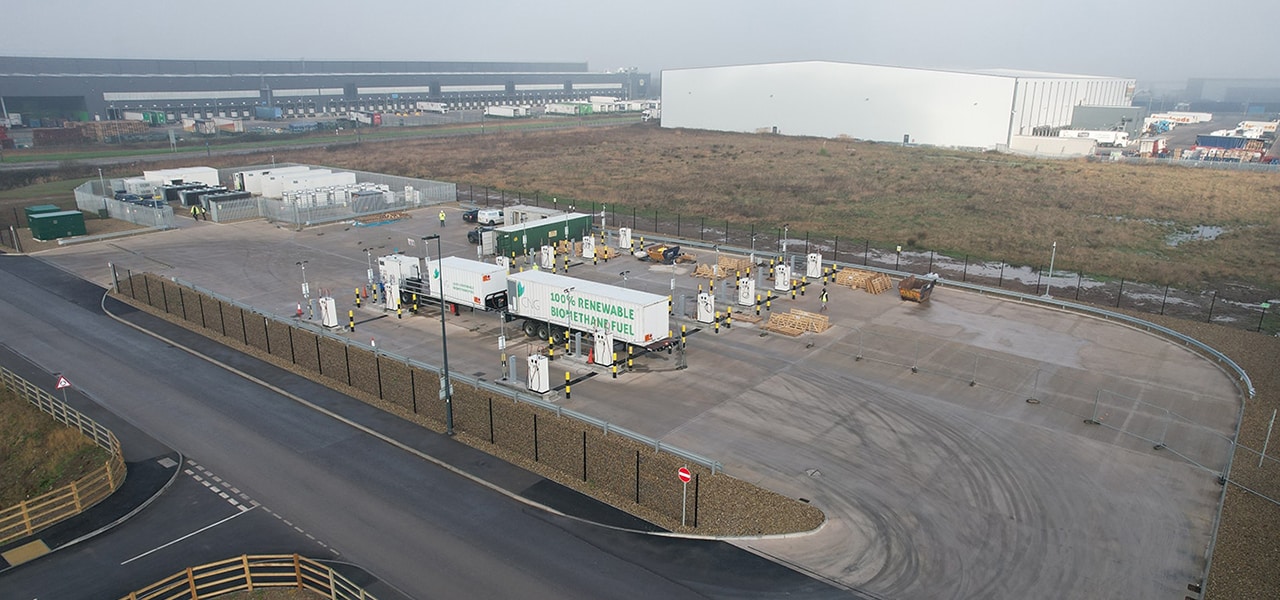 One of CNG Fuels‘ new bulk refuelling stations in England. Source: CNG Fuels
One of CNG Fuels‘ new bulk refuelling stations in England. Source: CNG Fuels
And there is a good chance that more will be added, as Philipp Fjeld of ReFuels reveals: “Two more filling stations are currently under construction and should be operational in the coming months. Construction should start on at least four more sand sites later this year.” Besides being good for the environment, the use of biogas is also worthwhile for the hauliers, as the total operating costs for a biogas truck over a period of five years can currently be expected to save around 80,000 Swiss francs compared to a diesel truck. (pd/jas, 6 July 2023)
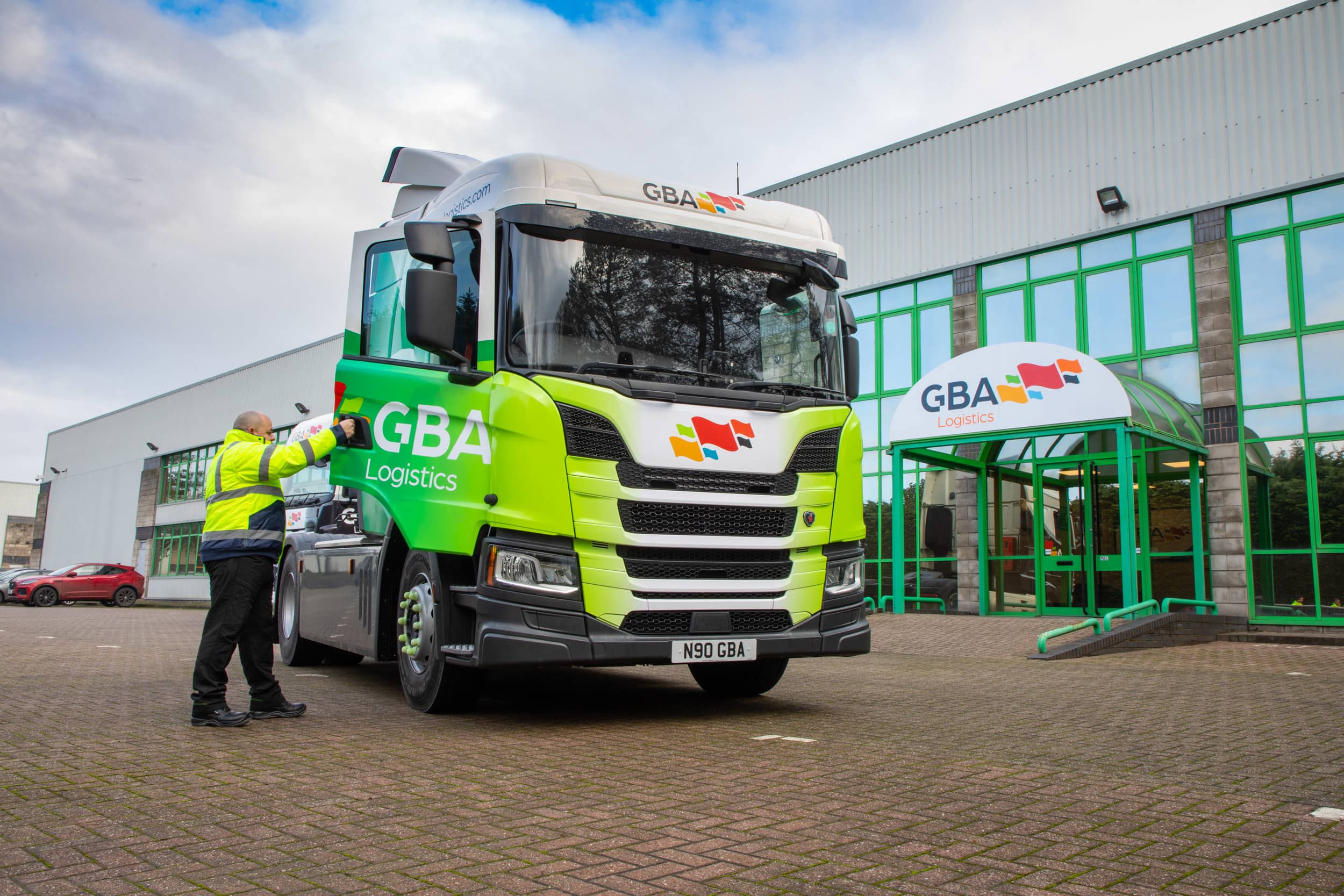 One of the Scania trucks with CNG drive of the logistics specialist GBA Services, which can be on the road almost CO2-neutral thanks to biogas in the tank. Source: Scania
One of the Scania trucks with CNG drive of the logistics specialist GBA Services, which can be on the road almost CO2-neutral thanks to biogas in the tank. Source: Scania
You might also be interested in
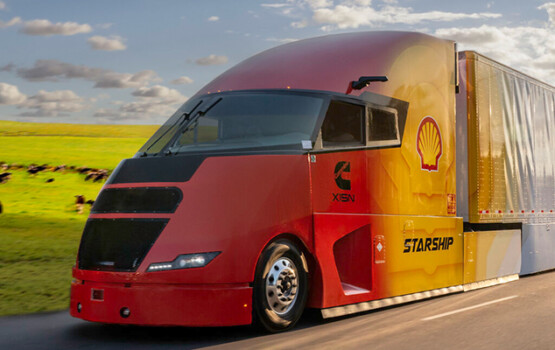
Shell Starship on record hunt
